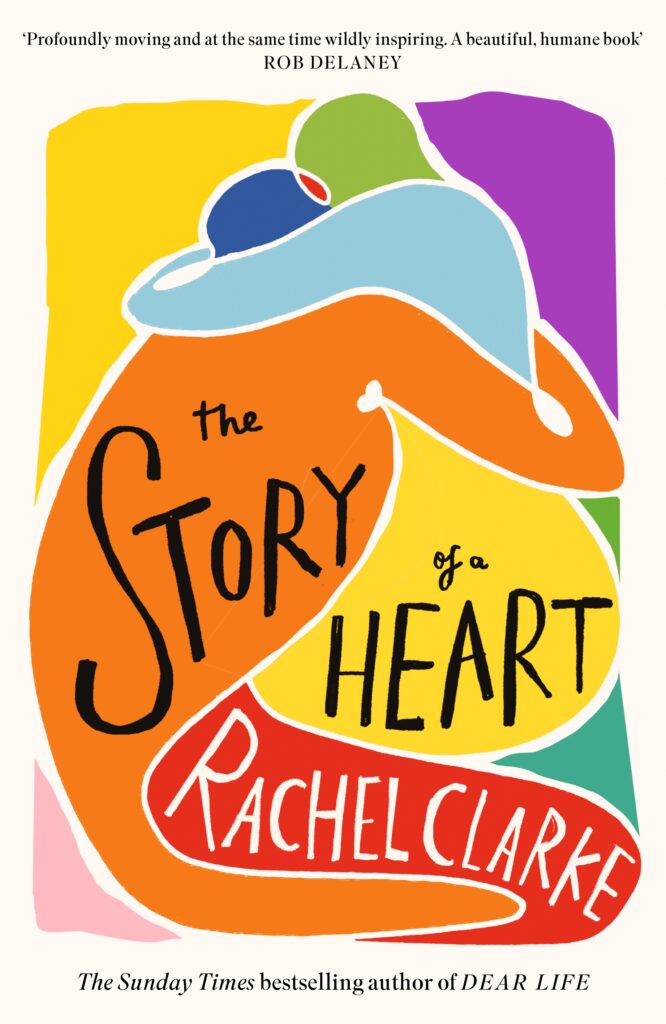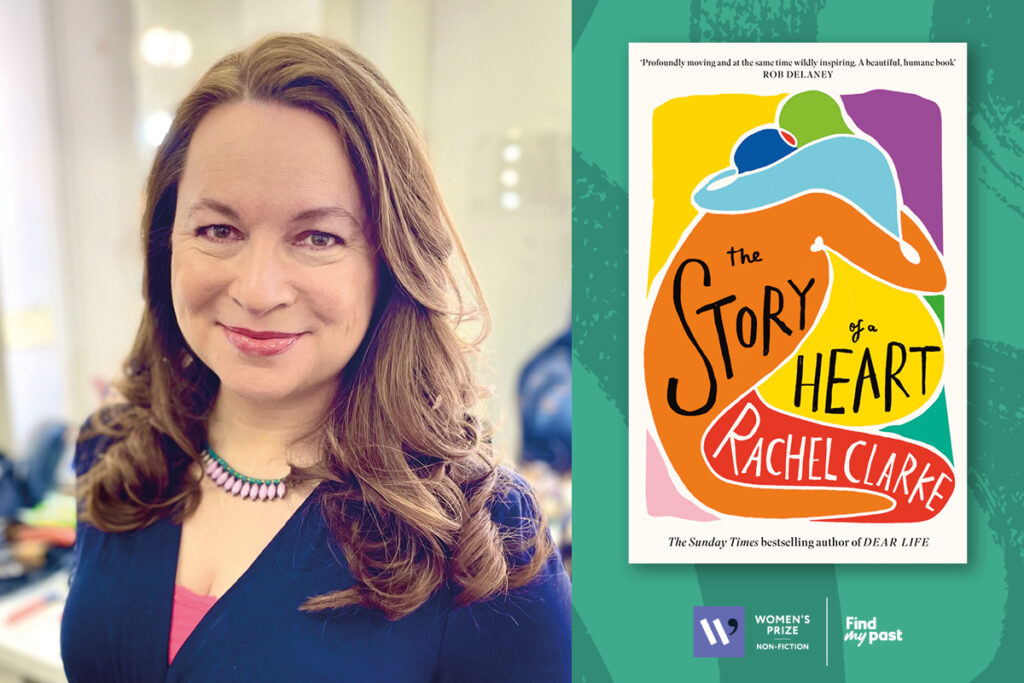The Story of a Heart by Rachel Clarke narrates a miraculous development in 20th century medicine – the heart transplant – showing us the human impact of this life-giving medical intervention.
Shortlisted for the 2025 Women’s Prize for Non-Fiction, Chair of judges Kavita Puri says: ‘This was a deeply affecting book, telling how one family in the midst of their grief gifts the heart of their child so that another human being can survive. Written with tenderness and compassion, while explaining the miracle of transplant surgery, this is storytelling at its best.’
To find out more about the book we spoke to Rachel about her writing, research and current reads.
How would you describe your book to a new reader?
The Story of a Heart tells the extended and extraordinary life of a single human heart, which would change organ donation in the UK for ever. From tragedy – the sudden death of nine-year-old Keira – comes joy when her heart saves the life of another nine-year-old, Max, himself close to death on the transplant list. Alongside interviews with both families and the remarkable array of health professionals behind the transplant, it tells the enthralling story of the century of medical and scientific breakthroughs than enable us to transplant organs today.
Did you have any revelation moments when writing your book? When the narrative and your objectives all fell into place?
A critical moment for me was when I realised the book’s narrative drive would develop most powerfully through the weaving together of three separate chronologies. One, Keira’s story, spanned only four days. The second, Max’s story, comprised a year of increasing sickness, to the transplant list, to his restoration to full health after receiving a new heart. The third was the century of medical and scientific breakthroughs that finally enabled surgeons to transplant human hearts successfully. I adored the challenge of crafting one compelling story from these three chronologies, each as tense and nerve-wracking as the others.
What is the one thing you’d like a reader to take away from reading your book? Is there one fact from the book that you think will stick with readers?
Human beings, no matter how bleak the circumstances, how much pain they endure, possess an astounding capacity to look outwards, towards others, with kindness and love. More than anything, a heart transplant is a form of radical altruism, an act of hope and defiance in the pitch dark. It’s easy to forget in our fractured world that most people, most of the time, try to be good.
And the fact? That your heart, every day, pumps enough blood to fill a small swimming pool – usually without missing a single beat.
How did you go about researching your book? What resources did you find the most helpful?
From the starting point of a single newspaper article about a particular heart transplant, I painstakingly pieced together the huge ensemble of family members and medical professionals who collectively enabled Keira’s heart to save the life of Max. It took five years of interviews and conversations, during which I also immersed myself in the history and science of transplant. My most important resource, oddly enough, was my medical, not journalistic, training. I needed to build relationships of trust and integrity with both families in particular, and to do that I drew on my moral code as a doctor.
Which female non-fiction author would you say has impacted your work the most?
So many magnificent female authors to choose from, but I was indelibly moved by Sally Hayden’s extraordinary combination of compassion, courage, humanity and tenacious research in My Fourth Time, We Drowned. This investigation of the world’s deadliest migration route is a journalistic masterpiece. I find it endlessly inspiring.
What is the best piece of writing advice you have ever received?
The musician Nick Cave writes beautifully about the sheer gruelling slog that underpins creative activity, the need to work and work and work at it. When I’m struggling for inspiration, I remember that principle. Get down to it, wrestle with it, work until your brain boils. Work.
Is there a non-fiction book you recommend all the time? If so, what is it and why do you recommend it?
Rebecca Solnit’s Hope in the Dark. I want to press this slim, passionate, exquisitely written account of why, despite everything, we have reasons to hope into the hands of all my friends. She reminds us that our smallest actions can ripple profoundly, and that the only sure route to hopelessness is ceasing to act at all.
What are you currently reading?
Female surgeon Gabriel Weston’s forthcoming non-fiction work Alive: An Alternative Anatomy.









